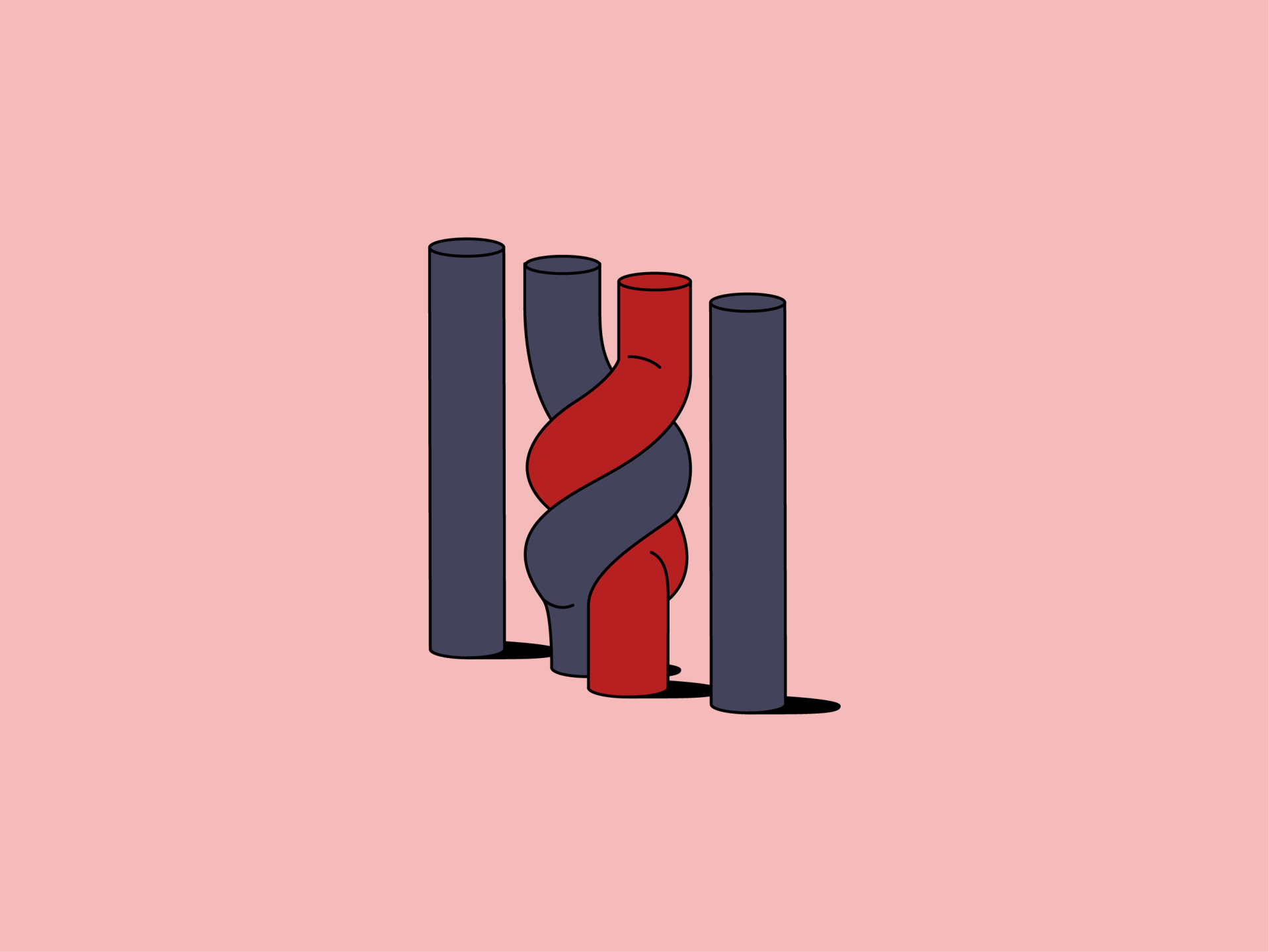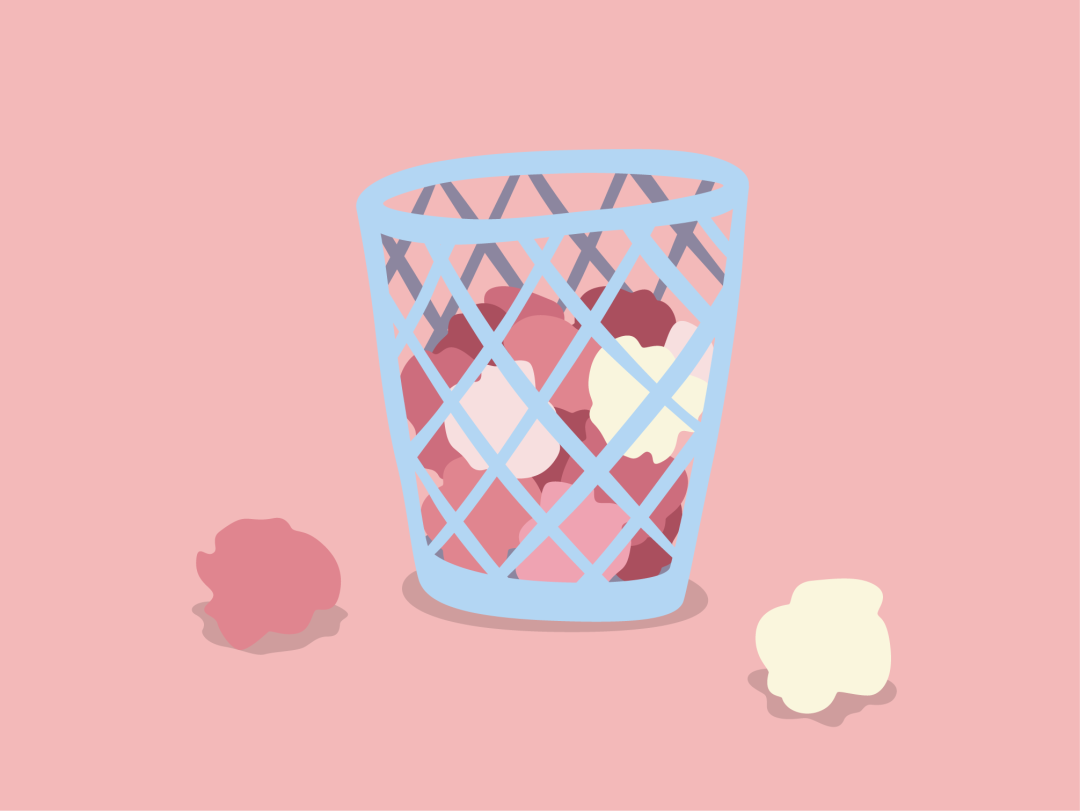Sign up to stay in the loop on new styles and sales!
Sign up to stay in the loop on new styles and sales!
#explainer
The Truth About Your Period Problems
health
·5 min read

by Kirsten Karchmer | 07/11/2018
We’ve been lied to. For centuries.
Your worst period problems. The ones that you lay awake in bed thinking of all month. Those aren’t normal. Cramping. Clotting. Bloating. Migraines. Cravings. Irritability. Anxiety. Mood Swings. Diarrhea. Fatigue. None of them are normal or necessary. Not “just part of being a woman.” Not “just pop an aspirin and deal with it.”
If you’re like me, for years you listened to your doctor when they told you that your symptoms were just part of a normal period. That answer never felt good enough for me. I wanted to know why this was happening to me. I wanted to know what was wrong with me, because goddamnit, I knew something was wrong, even if my doctor told me it was something that “I just had to deal with.”
For a lot of women, this kind of thinking is just hard-wired in. Once, one of my friends even told me that period pain was a “punishment for original sin.” What kind of bullshit is that?
For the last 20 years, I’ve been fixated on one problem — how do we fix period problems? Not just cover them up, but actually fix them. It took years, and over 10,000 patients, but for 90% of them, those period problems (even the really bad ones) were totally correctable.
Ready for the best part? For the majority women — yes, even you — period problems can be alleviated cheaply, easily, and naturally. It’s not magic, it’s science.
Before I give you my roadmap for perfect periods, let’s go back and look at what period problems really are, and what they actually mean.
Unmasking PMS and period pain
When we talk about period problems, we’re usually either talking about PMS or period pain. Both of these are super common—not normal—but common. More than 80% of women experience PMS and/or period pain. If you’re one of those women, you don’t need me telling you how real the struggle is. You know it. You live it every month. But what really causes these all too common problems, and what can we do about it?
The vast majority of women experience a collection of shitty period symptoms that range from cramping, to mood disorders, to breast tenderness, to general fatigue and malaise. While these symptoms vary from woman to woman, their cause is almost always the same. A hormonal deluge applies an immense amount of psychological and physiological stress to your body systems (think digestive system, detox system, hormone system, reproductive system, etc).
So why do period symptoms vary so much? Because, we all start from different places. For example, while one woman with a generally strong digestive system may not feel bloating or constipation, someone who starts with a weaker digestive engine may spend a week feeling like the Stay Puft marshmallow (wo)man.
Period pain is similar. While some women have a totally happy uterine environment — a thick, fresh, uninflamed, uterine lining, someone else’s lining may be thick and inflamed, leading to cramping and clotting during the period.
This isn’t all bad news though. Your period, and the stress that comes along with it, can actually help you identify weaknesses before they become real problems. For instance, if you’re really anxious, or irritable before every period, that’s a good indication that you’re under more psychological stress than is healthy. Realizing that now, and taking steps to decrease that stress (meditation, counseling, exercise, getting enough sleep) can not only reduce PMS related issues, but improve your mental health overall.
My roadmap to perfect periods
Improving your periods isn’t difficult or expensive, and it can be done 100% naturally. Here’s my super simple roadmap for better periods:
Keep track of your symptoms. This sounds super basic, but it’s really important. Keeping track of your symptoms will show you what you still need to work on. It will also show you if you’re making progress.
Identify your problem areas. For the most part, this is really intuitive. Are you feeling really stressed before your period? Seems like stress might be an issue. Does your digestion go to shit (literally) the week before your period? Let’s work on improving nutrition and digestion. Things like migraines and breast tenderness are usually a combination of stress and hormonal imbalance.
Make a plan. You don’t have to be a natural health expert to figure out how to start solving your most pressing issues. If your digestion is constantly a problem, that’s a good indication that you need to clean up your nutrition. Taking simple, daily steps toward health is an easy and free approach. Cut out fast food. Cook more. Less sugar. More veggies. You’d be surprised at how far a few simple changes can go.
Get help. If you’re still struggling with your symptoms, find someone to help you. Especially if you’re concerned that you might have a health issue related to your period, contact a healthcare provider — and don’t let them just write your symptoms off as normal!
Here’s the deal. At some level most women know that something is wrong when they are experiencing menstrual problems. We often suffer in silence because we have been so conditioned to the idea that menstruation is our own little piece of hell that we have to deal with.
When we don’t do anything, the suffering continues. And not just for a little while — an average woman will have about 450 periods. That’s 9 years of your life! So take action now.
Have you ever made a conscious effort to improve your periods? What steps did you take? Share them with us in the comments!
Kirsten Karchmer, MSAOM, is a health tech pioneer and women’s health expert. Founder and CEO of Conceivable Technologies and Viv Wellness, she is starting a women’s health revolution committed to eradicating PMS and cramping. Kirsten has helped over 10,000 women over the last 20 years to improve their health, cycles, and fertility. Read more from Kirsten at her blog, The Monthly.
by Kirsten Karchmer


